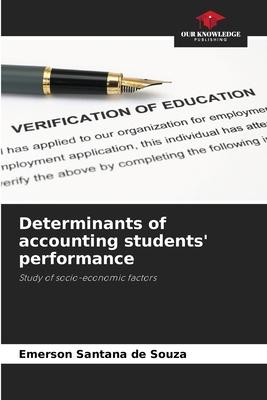Of the 772 accounting courses evaluated by ENADE/2006, only six obtained the highest score. The central question of this investigation is to identify some variables that determine the performance of Accounting courses in the aforementioned exam. The empirical-analytical methodology used was multivariate regression analysis, with the aim of identifying the relationship between student performance and socio-economic status. To this end, course concepts were used, as well as socio-economic information obtained from the database of the National Institute for Studies and Research Anísio Teixeira (Inep). The results showed that the student’s level of education prior to entering a higher education institution is the variable with the greatest influence on course performance. Next, in descending order, are the father’s schooling, personal effort on the course and family income as the most influential variables in the econometric model developed. On the other hand, the variable that captures the type of institution the student attended in high school was not very significant.
| FindBook |
|
有 1 項符合
Santana de Souza的圖書 |
 |
$ 2915 | Determinants of accounting students’ performance
作者:Santana de Souza 出版社:Our Knowledge Publishing 出版日期:2024-04-23 語言:英文 規格:平裝 / 80頁 / 22.86 x 15.24 x 0.48 cm / 普通級/ 初版  看圖書介紹 看圖書介紹
|
|
|
圖書介紹 - 資料來源:博客來 評分:
圖書名稱:Determinants of accounting students’ performance
|









